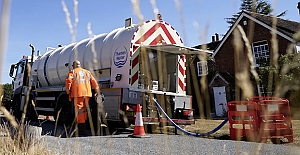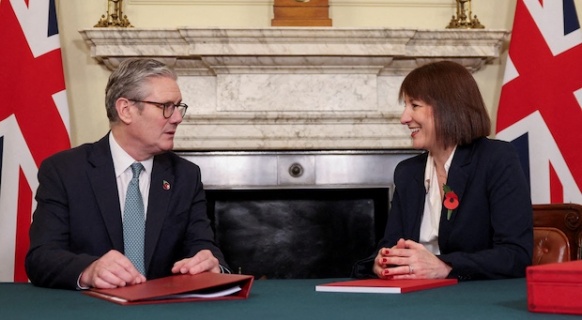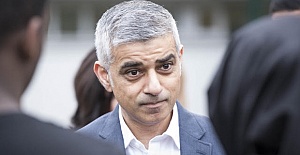In July the government published an audit of public spending. This set out £22 billion of in-year pressures. These pressures were not limited to 2024-25, with the vast majority recurring in future years.Compensation payments for victims of the Post Office Horizon IT and Infected Blood scandals had also not been fully accounted for. The government is providing compensation to the victims in full averaging £2.3 billion a year over the forecast period.There has additionally not been a Spending Review since 2021, so departmental budgets have not been systematically re-planned to account for the recent spike in inflation and other factors that have caused significant cost pressures.Plans set at Spring Budget 2024 were for day-to-day departmental spending to fall from 16.7% of GDP in 2023-24 to 16.0% in 2028-29 and for public sector net investment to fall from 2.5% of GDP in 2023-24 to 1.7% in 2028-29. This was in the context of declining public service performance and GDP per capita lower than at the start of the last Parliament.
The government is taking a different approach. Autumn Budget 2024 is:
Putting the public finances on a sustainable path by strengthening the fiscal framework, including announcing new fiscal rules, and taking difficult decisions on tax, welfare and spending.
Growing day-to-day departmental spending at an average of 2.0% per year in real terms between 2023-24 and 2029-30 to support public services, including to deliver 40,000 extra elective appointments a week and reduce NHS waiting lists.
Boosting capital investment by over £100 billion over the next five years, including in transport, housing and research and development (R&D), with a greater focus on value for money and delivery to help unlock long-term growth.
The Office for Budget Responsibility (OBR) has assessed the impact of the government’s decisions. In the OBR’s Economic and Fiscal Outlook, growth is forecast to increase to 2.0% in 2025 before moderating to 1.6% by 2029.
Public sector net investment averages 2.6 % of GDP over the Parliament. The OBR judges that higher investment will add to GDP during the forecast period, and if sustained will increase the size of the economy in the long term.
Strengthening the fiscal framework
To support economic and fiscal stability, the government is confirming a set of responsible reforms to the fiscal framework that improve certainty, transparency and accountability.
This includes announcing new fiscal rules:
Stability rule: to move the current budget into balance, so day-to-day spending is met by revenues, and the government will only borrow for investment.
Investment rule: to reduce net financial debt (public sector net financial liabilities) as a proportion of GDP. This rule keeps debt on a sustainable path while allowing the step change needed in investment, by capturing not just the debt that government owes, but also financial assets that are expected to generate future returns.
This is the last year that the fiscal rules will target the fifth and final year of the forecast. The rules must be met by 2029-30 at this Budget, and until 2029-30 becomes the third year of the forecast, at which point both rules will target the third year of the rolling forecast period.
The OBR confirms that the government is meeting the stability and investment rules. The current budget is in surplus and net financial debt falls as a share of the economy by 2029-30. Both rules are met early with the current budget in surplus from 2027-28 and net financial debt falling by 2027-28. Public sector net debt also falls as a share of the economy by 2029-30.
The fiscal rules are set out in a new Charter for Budget Responsibility, which implements a more stable and transparent framework. This includes committing to one major fiscal event a year, more regular Spending Reviews, and improved sharing of departmental spending information with the OBR.
Fixing the foundations
The government is driving efficiencies and reducing wasteful spending. The Budget sets a 2% productivity, efficiencies and savings target for government departments and has formally launched the Office for Value for Money to realise benefits from every pound of public spending.
The government will shortly appoint a Covid Corruption Commissioner. They will lead work to recover public funds from companies that took unfair advantage of government schemes during the COVID-19 pandemic.
The government is reforming its approach to welfare, including setting a new welfare cap for 2029-30 with strengthened accountability, to support spending control and ensure that welfare spending is sustainable in the medium term.
Fraud and error in the welfare system costs the government almost £10 billion a year. The government is cracking down on this with a package of measures saving £4.3 billion in 2029-30. The government will set out reforms to health and disability benefits early in 2025 to ensure the system supports people who can work to remain in or start employment, in a way that is fair and fiscally sustainable.
The government is ensuring that tax that is owed is paid by introducing the most ambitious ever package to close the tax gap, raising £6.5 billion in additional tax revenue per year by 2029-30.
Supporting people with the cost of living
The government is boosting wages for the low paid by accepting the recommendations of the Low Pay Commission in full, meaning the National Living Wage will increase. This represents an increase of over £1,400 to the annual earnings of a full-time worker on the National Living Wage and is expected to benefit over 3 million low paid workers across the UK.
To protect vulnerable people, the government will provide £1 billion, including Barnett, to extend the Household Support Fund and Discretionary Housing Payments in 2025-26, which will be used by local authorities to address immediate hardship and crisis.
The government will maintain the State Pension Triple Lock for the duration of this Parliament. The basic and new State Pension will increase by 4.1% in 2025-26, in line with earnings growth, meaning over 12 million pensioners will receive up to £470 per year. Working age benefits will be uprated in full in 2025-26 by the September 2024 Consumer Price Index (CPI) inflation rate of 1.7%.
The government is also creating a new Fair Repayment Rate, which caps debt repayments made in Universal Credit, allowing 1.2 million households to keep more of their Universal Credit award. The Carer’s Allowance weekly earnings limit will also be raised to improve financial security for carers to support them into work or to work more hours if they choose.
Protecting working people
Despite challenging fiscal circumstances and the need to raise additional revenue to repair the public finances, the government is protecting working people.
The government has committed to not increase taxes on working people, which is why it is not increasing the basic, higher or additional rates of income tax, National Insurance contributions (NICs) or VAT.
The government is freezing fuel duty and extending the temporary 5p cut for one year, at a cost of £3 billion next year, to support hard-working families and businesses. This will save the average car driver £59 in 2025-26.
The government will not extend the freeze to income tax and National Insurance contributions thresholds. From April 2028, these personal tax thresholds will be uprated in line with inflation.
Supporting businesses
The government will deliver a fairer business rates system through permanently lower business rates multipliers for retail, hospitality and leisure (RHL) properties from 2026-27. The Budget also provides £1.9 billion of support to small businesses and the high street in 2025-26 by freezing the small business multiplier and providing 40% relief on bills for RHL properties, up to a £110,000 cash cap.
To recognise the economic and cultural importance of British pubs, and commitment to supporting smaller brewers, the government is cutting alcohol duty on draught products from February next year, reducing it by 1 penny per average strength pint. Alcohol duty on non-draught products will increase in line with Retail Price Index (RPI) inflation from the same date.
The government is supporting spirits producers, such as the Scotch Whisky industry, by removing mandatory duty stamps for spirits and increasing investment in the Spirit Drinks Verification Scheme, which allows producers to verify the geographic origin of their products.
The government is providing stability and predictability to support businesses to invest by publishing a Corporate Tax Roadmap, which confirms that the government will cap the rate of Corporation Tax at 25%, the lowest in the G7, for the duration of the Parliament.
Raising revenue to fund public services
To repair the public finances and help raise the revenue required to increase funding for public services, the government is taking the difficult decision to increase the rate of employer NICs by 1.2 percentage points to 15%. The per‑employee threshold at which employers start to pay National Insurance will be reduced from £9,100 per year to £5,000 per year. These changes will apply from 6 April 2025.
To support small businesses with these changes, the government is increasing the Employment Allowance from £5,000 to £10,500 and removing the £100,000 threshold, expanding this to all eligible employers. This means that 865,000 employers will pay no NICs next year.
The Budget increases the lower rate of Capital Gains Tax (CGT) from 10% to 18% and the higher rate from 20% to 24%. This ensures asset owners pay their fair share whilst keeping the UK tax system internationally competitive, with lower rates than comparable EU countries. CGT rates for Business Asset Disposal Relief and Investors’ Relief will rise gradually to 14% from 6 April 2025 and match the main lower rate of 18% from 6 April 2026, to allow business owners time to adjust to the changes.
The government is making the inheritance tax system fairer by applying inheritance tax to unspent pensions pots and restricting the generosity of agricultural property relief and business property relief for the wealthiest estates.
To ensure Air Passenger Duty (APD) revenues remain sustainable, the government will adjust all APD rates in 2026-27, adding £2 for those flying economy to short-haul destinations. Higher rates for private jets will increase by 50% and the government is consulting on extending the higher rate to include more private jets.
To help drive the transition to electric vehicles (EVs) the government is strengthening incentives to purchase EVs by widening the differentials in Vehicle Excise Duty First Year Rates between EVs and hybrids or internal combustion engine cars. The government is also maintaining EV incentives in the Company Car Tax regime and extending 100% First Year Allowances for zero emission cars and EV chargepoints for a further year.
Delivering on tax commitments
The government is delivering on its commitments to make the tax system fairer and raise revenue to fund public services.
The Budget is closing loopholes in the tax system, including ending the unfair current treatment of carried interest and replacing the non-dom tax regime with a new residence-based system to make sure that everyone who makes their home in the UK pays their taxes here.
The government is supporting first-time and main home buyers by increasing the Higher Rates for Additional Dwellings in Stamp Duty Land Tax on the purchases of second homes, buy-to-let residential properties, and companies purchasing residential property, from 3% to 5% from 31 October 2024.
To help make the UK a clean energy superpower, oil and gas companies will contribute more to support the energy transition. The government is increasing the rate of the Energy Profits Levy (EPL) from 35% to 38%, removing the 29% investment allowance, and extending the levy until 31 March 2030. To provide certainty and to support a stable energy transition, 100% first-year allowances in the EPL will remain and the government will consult in early 2025 on how the oil and gas tax regime should respond to price shocks once the EPL ends in 2030.
To help fund the government’s priorities for education and young people it is delivering on its commitment to charge VAT on private school fees and to remove business rates charitable relief in England.
Fixing the NHS and reforming public services
Through Phase 1 of Spending Review 2025 the government is resetting public spending for 2024-25 and setting departmental budgets for 2025-26.
The government is providing an additional £22.6 billion of resource spending in 2025-26, compared to 2023-24 outturn, for the Department of Health and Social Care. This will support the NHS in England to deliver an additional 40,000 elective appointments a week and make progress towards the commitment that patients should expect to wait no longer than 18 weeks from referral to consultant-led treatment.
The government is boosting capital investment in public services in 2025-26 including £1.5 billion to deliver capacity for more than 30,000 NHS procedures, over 1.25 million more diagnostic tests and new beds across the NHS estate, and £1 billion to reduce the backlog of critical NHS maintenance, repairs and upgrades. The government is also investing £1.4 billion to help rebuild schools, £1.2 billion to deliver extra prison places, and almost £1.6 billion in local roads maintenance.
The government is delivering on its other first steps, including supporting recruitment of 6,500 new teachers in England through a £2.3 billion increase to the core schools budget, launching Great British Energy and a new Border Security Command, and cracking down on antisocial behaviour by supporting neighbourhood policing.
The Budget fixes the envelope for Phase 2 of the Spending Review, which will deliver a new mission-led, technology-enabled, and reform-driven settlement for public services. The Spending Review will conclude in late spring 2025.
Rebuilding Britain
The government is delivering its growth mission by prioritising stability, investment and reform to drive prosperity across the UK. The Budget takes the difficult decisions to put the public finances on a sustainable path to create the conditions for growth.
Supported by the new fiscal framework, the Budget increases public investment by more than £100 billion over the next five years to boost growth and help crowd in private investment in the long run. Capital investment will increase by £13 billion next year, taking total departmental capital spending to £131 billion in 2025-26.
This includes investing in transport, kickstarting the delivery of 1.5 million homes, supporting new industries and job creation, and protecting record R&D funding. The Budget also increases investment in public services, recognising that a well-functioning NHS and education system are critical to the economy.
With new guardrails that will govern the approach to capital spending, and new and strengthened institutions, the government is reforming the way it plans, assures, delivers and evaluates capital spending. These changes will provide greater certainty for departments, investors and supply chains, and greater assurance that investment achieves value for money, is well delivered and supports growth.
The government will work in partnership with the private sector to further increase investment. The government has created the National Wealth Fund to catalyse over £70 billion of private investment, set out plans for a modern Industrial Strategy to support investment in growth-driving sectors, and launched a pensions review to unlock greater investment in UK growth assets.
The government is making the reforms needed to deliver sustained growth in the long-term. These include ambitious planning reforms to remove barriers to growth, the development of a 10-year infrastructure strategy to be published alongside Phase 2 of the Spending Review, the forthcoming publication of the Get Britain Working White Paper, and the establishment of Skills England to ensure we have the highly-trained workforce needed to deliver economic growth.
The government’s growth policy priorities, under the framework of stability, investment and reform, have been structured into seven pillars, as illustrated in chapter 3. These priorities are being taken forward in partnership with business, and backed by a continuous focus on delivery supported by a Growth Delivery Unit established in HM Treasury.
Autumn Budget 2024 is fixing the foundations of the economy and beginning a decade of national renewal. The government is protecting working people, fixing the NHS, and boosting investment to deliver growth and prosperity for all parts of the country.


 After Nesil Caliskan a by-election will be held in Jubilee ward in Enfield
After Nesil Caliskan a by-election will be held in Jubilee ward in Enfield Publishing the analysis, Labour’s Cllr Ergin Erbil said Everybody in Enfield deserves basic rights
Publishing the analysis, Labour’s Cllr Ergin Erbil said Everybody in Enfield deserves basic rights Gaza-Israel conflict Statement from Cllr Ergin Erbil, Leader of Enfield Council
Gaza-Israel conflict Statement from Cllr Ergin Erbil, Leader of Enfield Council Cllr Ergin Erbil was elected as the new Leader of Enfield Council
Cllr Ergin Erbil was elected as the new Leader of Enfield Council Sustainable Development and ESG, Will This Become the Course for Turkic World
Sustainable Development and ESG, Will This Become the Course for Turkic World Thousands evacuate Santorini as more earthquakes strike island
Thousands evacuate Santorini as more earthquakes strike island Rauf Raif Denktas and Dr. Fazıl Kucuk II. International Cyprus Studies
Rauf Raif Denktas and Dr. Fazıl Kucuk II. International Cyprus Studies We continue our promotional activities in Europe, primarily in the UK said Ahmet Aras
We continue our promotional activities in Europe, primarily in the UK said Ahmet Aras Saran Media And Euroleague Basketball Extend Media Rights Partnership for Four More Years
Saran Media And Euroleague Basketball Extend Media Rights Partnership for Four More Years Will Rangers be Jose Mourinho’s next victim?
Will Rangers be Jose Mourinho’s next victim? Jose Mourinho's Fenerbahce face Rangers on Thursday
Jose Mourinho's Fenerbahce face Rangers on Thursday Inzaghi stated that they felt the absence of our national player Hakan Çalhanoğlu
Inzaghi stated that they felt the absence of our national player Hakan Çalhanoğlu Why is Thames Water in so much trouble?
Why is Thames Water in so much trouble? Plans revealed for the next proposed Superloop express bus route in the Thamesmead
Plans revealed for the next proposed Superloop express bus route in the Thamesmead Gatwick second runway backed by government
Gatwick second runway backed by government British Kebab Awards 2025 winners
British Kebab Awards 2025 winners
















